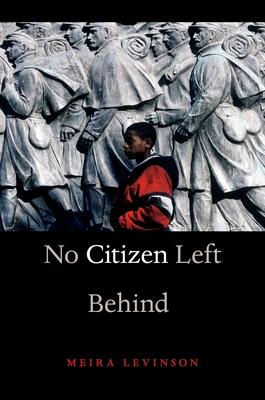While teaching at an all-Black middle school in Atlanta, Meira Levinson realized that students' individual self-improvement would not necessarily enable them to overcome their profound marginalization within American society. This is because of a civic empowerment gap that is as shameful and antidemocratic as the academic achievement gap targeted by No Child Left Behind. No Citizen Left Behind argues that students must be taught how to upend and reshape power relationships directly, through political and civic action. Drawing on political theory, empirical research, and her own on-the-ground experience, Levinson shows how de facto segregated urban schools can and must be at the center of this struggle.
Recovering the civic purposes of public schools will take more than tweaking the curriculum. Levinson calls on schools to remake civic education. Schools should teach collective action, openly discuss the racialized dimensions of citizenship, and provoke students by engaging their passions against contemporary injustices. Students must also have frequent opportunities to take civic and political action, including within the school itself. To build a truly egalitarian society, we must reject myths of civic sameness and empower all young people to raise their diverse voices. Levinson's account challenges not just educators but all who care about justice, diversity, or democracy.
While teaching at an all-Black middle school in Atlanta, Meira Levinson realized that students' individual self-improvement would not necessarily enable them to overcome their profound marginalization within American society. This is because of a civic empowerment gap that is as shameful and antidemocratic as the academic achievement gap targeted by No Child Left Behind. No Citizen Left Behind argues that students must be taught how to upend and reshape power relationships directly, through political and civic action. Drawing on political theory, empirical research, and her own on-the-ground experience, Levinson shows how de facto segregated urban schools can and must be at the center of this struggle.
Recovering the civic purposes of public schools will take more than tweaking the curriculum. Levinson calls on schools to remake civic education. Schools should teach collective action, openly discuss the racialized dimensions of citizenship, and provoke students by engaging their passions against contemporary injustices. Students must also have frequent opportunities to take civic and political action, including within the school itself. To build a truly egalitarian society, we must reject myths of civic sameness and empower all young people to raise their diverse voices. Levinson's account challenges not just educators but all who care about justice, diversity, or democracy.Paperback
$28.89